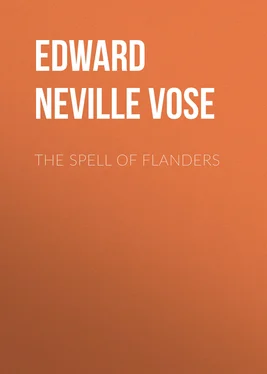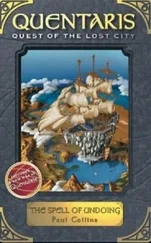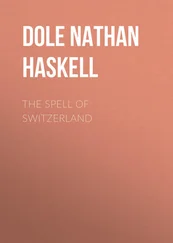Edward Vose - The Spell of Flanders
Здесь есть возможность читать онлайн «Edward Vose - The Spell of Flanders» — ознакомительный отрывок электронной книги совершенно бесплатно, а после прочтения отрывка купить полную версию. В некоторых случаях можно слушать аудио, скачать через торрент в формате fb2 и присутствует краткое содержание. Жанр: Путешествия и география, foreign_antique, foreign_prose, на английском языке. Описание произведения, (предисловие) а так же отзывы посетителей доступны на портале библиотеки ЛибКат.
- Название:The Spell of Flanders
- Автор:
- Жанр:
- Год:неизвестен
- ISBN:нет данных
- Рейтинг книги:5 / 5. Голосов: 1
-
Избранное:Добавить в избранное
- Отзывы:
-
Ваша оценка:
- 100
- 1
- 2
- 3
- 4
- 5
The Spell of Flanders: краткое содержание, описание и аннотация
Предлагаем к чтению аннотацию, описание, краткое содержание или предисловие (зависит от того, что написал сам автор книги «The Spell of Flanders»). Если вы не нашли необходимую информацию о книге — напишите в комментариях, мы постараемся отыскать её.
The Spell of Flanders — читать онлайн ознакомительный отрывок
Ниже представлен текст книги, разбитый по страницам. Система сохранения места последней прочитанной страницы, позволяет с удобством читать онлайн бесплатно книгу «The Spell of Flanders», без необходимости каждый раз заново искать на чём Вы остановились. Поставьте закладку, и сможете в любой момент перейти на страницу, на которой закончили чтение.
Интервал:
Закладка:
“Which is just enough to enable us to derive sincere pleasure from seeing them, and having them explained to us, without troubling our heads about this, that or the other element of technique,” I interrupted, completing the Professor’s sentence for him.
“And the best part of the day will be, just as Madame says,” added Mrs. Professor gaily, “the dinners on the sidewalks, where we can watch the people as they go about and tell each other of what we have seen since morning. And, hurray! for the Flemish inns!”
“Well, as to Flemish inns,” observed the Madame, “what I said related to eating a dinner in one. When it comes to sleeping in them there are other things to think of besides beamed ceilings and picturesque interiors.
“A few years ago we had an experience at Antwerp that taught us the folly of arriving at a great continental city late at night without having hotel accommodations secured in advance. We had started at eight in the morning from Hamburg, intending to stop at Antwerp just long enough to transfer our belongings to a train for Brussels that, according to the time-table, would leave fifteen minutes after our train arrived. Now, from Hamburg to Antwerp is quite a long ride—short as the distance looks on the map—and when we finally arrived at our destination, half an hour late, it was long after midnight and our train for Brussels had gone.
“We were both tired out, and hastily decided that we would put up at Antwerp for the night and go on to Brussels in the morning. As we emerged from the great Gare Centrale we found despite the lateness of the hour, about a dozen red-capped hotel runners, each of whom clamoured for our patronage. They all looked very much alike, the names on their caps meant nothing to us as we were not familiar with the Antwerp hotels, and we selected one at random. To our dismay we discovered, when it was too late, that, whereas most of them had hotel busses in waiting—into which they leaped and were driven off—our cicerone was not so provided. He attempted to reassure us by saying that the Grand Hotel de – was close by—a fact that produced the opposite effect from that intended, as we knew that the immediate vicinity of a large railroad station is seldom a desirable neighbourhood.
“However, the other porters were now gone and, unless we were disposed to sleep in the station, there was nothing to do but follow along. To our further alarm our guide presently turned into a most unprepossessing street on which several drinking places were still open, or were only on the point of closing. Into one of these he led us. After a short conference with the proprietress, who was sitting behind the bar counting the day’s receipts, he took a candle and a huge key and led us out into the court, then up a flight of stairs placed on the outside of the house, and through several narrow passageways. But for the flickering candle everything was completely dark, and when he finally ushered us into an immense room with a mediæval four-post bed in its darkest corner we involuntarily looked for the trap-door down which the murderous inn-keepers of the stories were wont to cast their victims.
“Lighting a pair of candles on the mantelpiece from his, and wishing us a civil ‘ Bon soir ,’ our red-capped guide now left us—to our great relief. Although we tried to dismiss our fears as childish, we both felt more insecure and helpless than we cared to admit, even to each other. None of our friends knew that we were in Antwerp. If we disappeared they would hardly think to look for us there—and still less on this shabby street, the very name of which we did not know.
“We barricaded the door against a sudden surprise, inspected the walls with a candle for signs of the secret door (at the head of the winding stairway up which the wicked innkeeper so often creeps upon his prey, according to the chronicles) and at last, the fatigue of the day overcoming our fears, we slept. It was broad daylight when we awoke, and the street was alive with people—mostly cartmen and peasants it seemed. With some difficulty we found our way down to the room where we had seen the landlady the night before. She greeted us warmly, our fears of the night had fled—and we sat down and ordered, and enjoyed, a most excellent breakfast. The hotel was quite a popular one, we learned, much frequented by people from near-by towns, and we had never been safer in our lives. Yet, just the same, we both vowed firmly that ‘Never Again’ would we take similar chances—and we never have.”
“I have thought of that incident more than once while talking over our Flemish tour with the Professor,” I observed, “and have decided upon this plan. When we find a hotel that suits us all, as regards cleanliness, cuisine and safety—or rather the sense of security, for I daresay we would be safe enough in many that we would hardly care to patronise—we will stay overnight in whatever town we may chance to be visiting. If, on the other hand, we have not had time to find such a place, we’ll take a train back to Antwerp or Brussels, where there are hotels that we know all about. We’ll get second-class billets d’abonnement every two weeks anyway, so the rail trip will only cost us our time.”
“And are Antwerp and Brussels both in Flanders?” inquired Mrs. Professor. “Between you, you have given me an idea that I should like to visit Flanders, but you have none of you answered my question as to where it is.”
“I think I can answer you, my dear,” replied her husband. “There are, as you probably know, two little provinces in the northern part of Belgium called East and West Flanders. The boundaries of the Flanders of history and of art, however, cover a considerable wider area than these two provinces. Over in France a considerable part of the Department du Nord was for centuries subject to the Counts of Flanders. On the other side, to the eastward, the cities of Antwerp and Malines were for many centuries independent of the Counts of Flanders, but their people spoke Flemish, their houses, churches and town-halls were built in the best style of Flemish architecture, and they became famous centres of Flemish art and learning. To my mind, therefore, they both belong to Flanders. Brussels, however, while its Hotel de Ville and Grande Place are splendid examples of Flemish architecture, is more French than Flemish, and belongs to the Walloon or French part of Belgium.
“Now, as the Editor here has proposed a plan which seems to me a good one as regards our hotels, I will venture to suggest one as regards our itinerary. It will make comparatively little difference which towns we visit first, and as some are more closely identified with the early history of Flanders than the others I propose that we visit these older towns first. At the time of the Crusades Ypres, for example, had two hundred thousand inhabitants when the population of London was less than thirty-five thousand and Antwerp was an obscure little town. Nieuport and Furnes were, at that time, the chief seaports of Flanders. Now they are miles from the sea. Dixmude, near by, was another important city of those olden days. Now all these places are country villages—‘the dead cities of Flanders,’ they are called, and scarcely a tourist from America ever visits them, although they are fairly familiar to our English cousins.
“If we start our pilgrimage in Flanders with Bruges, which was the first capital of the County of Flanders, and with these old towns—all of which are hard by—we can plan our journeys chronologically, so to speak, visiting first the monuments that date from the twelfth to the fourteenth centuries, then those of the fifteenth and sixteenth centuries, and so on. In that way we not only can keep the little history we know straight, but we can trace with our own eyes the gradual development of Flemish architecture and art.”
Читать дальшеИнтервал:
Закладка:
Похожие книги на «The Spell of Flanders»
Представляем Вашему вниманию похожие книги на «The Spell of Flanders» списком для выбора. Мы отобрали схожую по названию и смыслу литературу в надежде предоставить читателям больше вариантов отыскать новые, интересные, ещё непрочитанные произведения.
Обсуждение, отзывы о книге «The Spell of Flanders» и просто собственные мнения читателей. Оставьте ваши комментарии, напишите, что Вы думаете о произведении, его смысле или главных героях. Укажите что конкретно понравилось, а что нет, и почему Вы так считаете.












